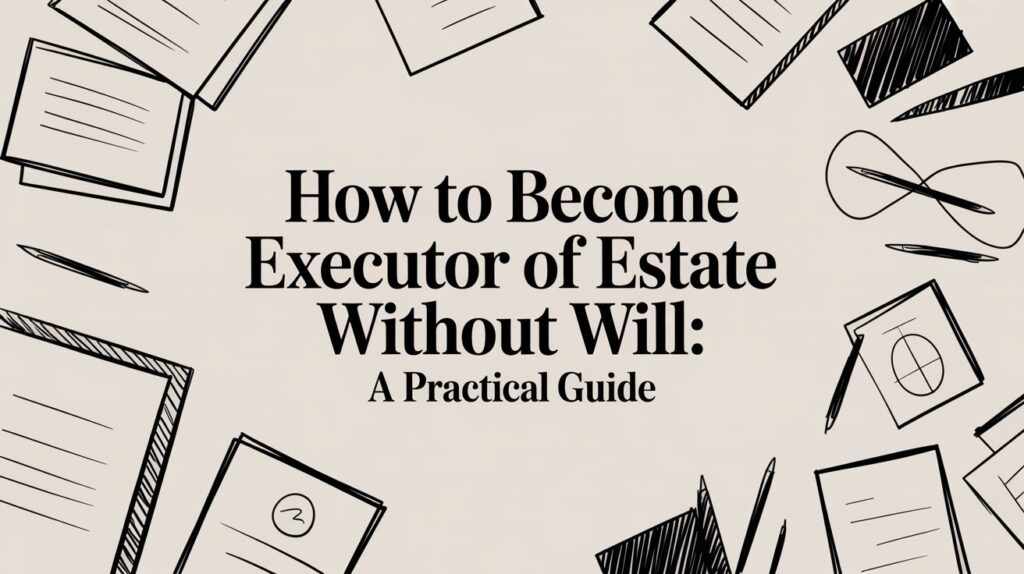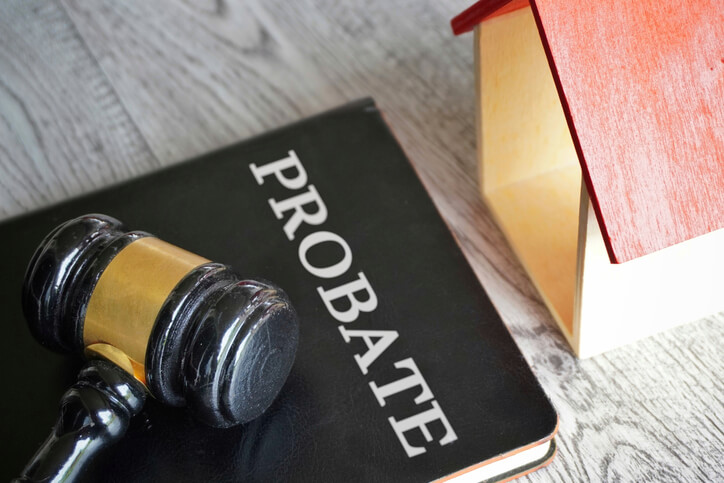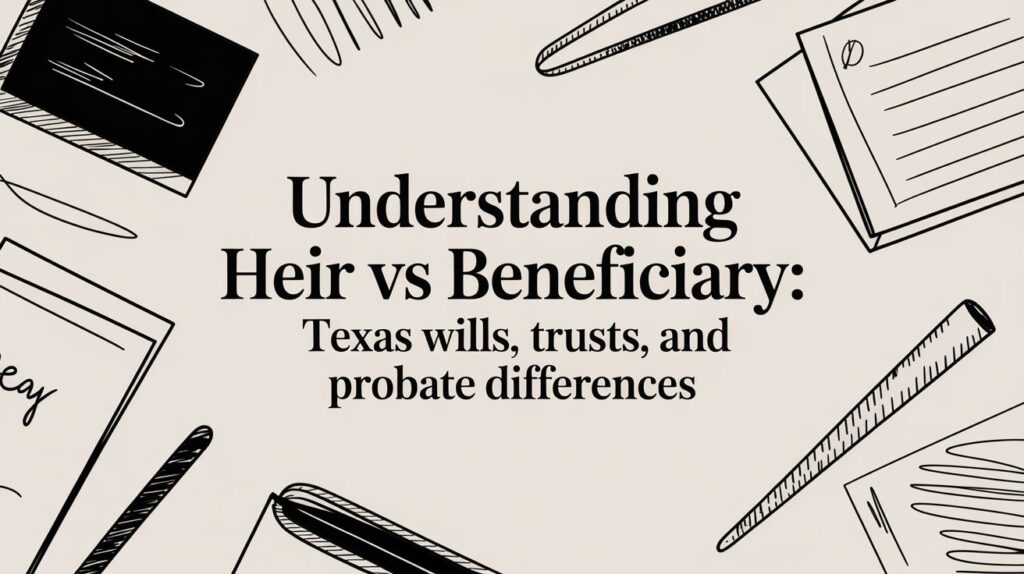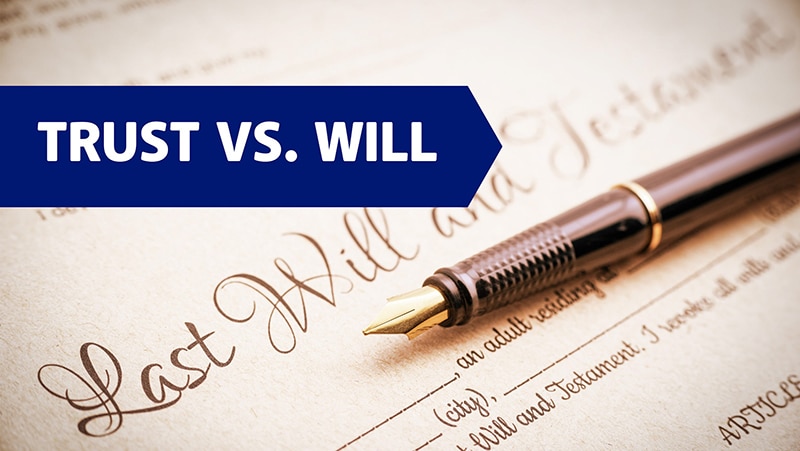Estate planning is often a topic that people prefer to avoid. It can feel like delving into a world of legal jargon and uncomfortable discussions about the inevitable. But let me assure you, it doesn’t have to be that way. Estate planning is a crucial and empowering part of life, allowing you to take control of your legacy, provide for your loved ones, and ensure your wishes are respected. So, grab a cup of coffee, find a comfortable chair, and join me as we explore the essential aspects of estate planning in an informative, engaging, and enjoyable way. It’s time to demystify the world of estate planning and embark on a journey to secure your future and your family’s well-being.
What Is Estate Planning?
Estate planning is like creating a roadmap for your assets and wishes after you’re gone. It’s not just for the wealthy; it’s for anyone who wants to make life easier for their loved ones when they’re no longer around. Think of it as your final love letter to your family.
So, what’s in this estate planning toolkit? It starts with a will that spells out who gets what from your belongings. But that’s just the beginning. There’s also the charming character called a living will, which is all about your healthcare wishes, and a power of attorney, which lets someone manage your affairs if you can’t.
The star of the show might be a trust, though. Trusts are like the Swiss army knife of estate planning. They can help you avoid probate, maintain privacy, and even provide for your favorite charity or your fluffy cat, Mr. Whiskers. The key is to have a heartfelt conversation with a legal pro specializing in estate planning. They’ll help you create a plan that’s as unique as you are. Remember, estate planning is about peace of mind, not just piles of assets.
What Is a Small Estate?

In its grandeur, estate planning often conjures up images of vast inheritances, opulent mansions, and substantial financial portfolios. But only some have such wealth. Many individuals have modest estates, where the concept of a “small estate” takes center stage in estate planning.
In estate planning, a small estate is an estate with a total value below a specific threshold. The threshold varies from one jurisdiction to another, as it is determined by state laws or regulations. The primary purpose of defining small estates is to simplify the estate transfer process for those who do not have substantial assets or complex financial arrangements to pass on.
The Importance
1. Simplification: Estate planning is often associated with creating wills, trusts, and other legal documents to ensure the orderly distribution of one’s assets upon passing. In the case of a small estate, the simplified process helps to avoid the complexity and expenses associated with extensive estate planning.
2. Small Estate Affidavit: One key tool for managing a small estate is the “small estate affidavit.” This legal document allows heirs and beneficiaries to claim the deceased’s assets without going through the full probate process. It’s a streamlined way to ensure that the decedent’s wishes are respected and the assets are transferred efficiently.
3. Cost-Effective Approach: Small estate planning tends to be more cost-effective. The legal fees and administrative costs associated with the distribution of a small estate are generally lower than those for larger, more complex estates.
4. Personal Property and Real Estate: Small estates can include personal property, such as cars, furniture, and personal belongings, as well as real estate properties. The value of these assets is typically considered in determining whether an estate qualifies as a small estate.
5. Beneficiary Designations: In some cases, assets like life insurance policies, retirement accounts, and bank accounts can have beneficiary designations. These designations allow for a direct transfer to the named beneficiaries, bypassing the probate process.
6. Legacy and Family Heirlooms: Even if an estate is small in monetary terms, it can hold significant sentimental value through family heirlooms and personal treasures. These items are often just as crucial to include in estate planning.
What Is a Probate Court?
Picture this: a family member or a friend has passed away, and now there’s a whole puzzle to solve. What happens to their assets, like the house, savings, or maybe even that impressive collection of vintage vinyl records? Well, that’s where the probate court steps in.
Probate is a legal process that occurs when someone dies. It’s the official method for handling the deceased person’s estate, which includes their property, financial assets, and possessions. This process ensures that everything is managed fairly and according to the rules.
Now, probate court is the stage where this puzzle gets put together. It’s the place where legal matters surrounding the person’s estate are addressed. Think of it as a referee for the final innings of life’s game.
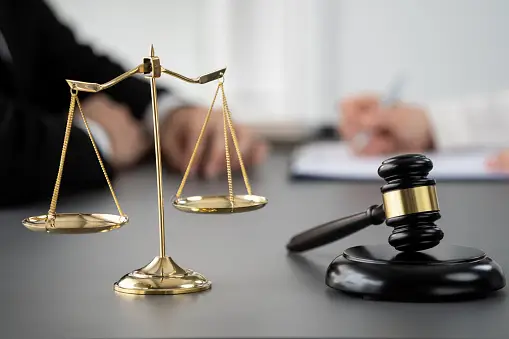
What Do Probate Courts Do?
1. Validating the Will: If the deceased had a will, the probate court reviews it to ensure it’s valid and complies with state laws. This step is crucial because the will is like a roadmap for distributing their assets.
2. Asset Distribution: If there’s a will, it outlines who gets what. If there’s no will (intestate), the court determines how the assets should be distributed. This can involve dividing up property, settling debts, and handling outstanding financial matters.
3. Handling Disputes: Sometimes, conflicts arise among beneficiaries or creditors. The probate court acts as a mediator to resolve these disputes, ensuring a fair and just outcome.
4. Protecting Creditors: Part of probate involves notifying and paying off the deceased person’s debts. This is done to protect creditors’ rights and ensure they get paid from the estate.
5. Wrapping It Up: The ultimate goal of probate court is to settle the estate’s affairs, so everyone involved knows what they’re entitled to, and the deceased person’s final wishes are carried out.
Now, probate court may sound daunting, but it’s there to maintain transparency and ensure fairness in the distribution of assets. The process can be straightforward, especially with a well-prepared will, or it can get complicated if disputes or complex assets are involved. In essence, the probate court is like the judicial umpire in the game of estate distribution. It ensures that the final chapter of a person’s life is closed with equity and adherence to the law.
Gaining Access to Probate Courts
Picture probate courts as the silent heroes behind the scenes, ensuring the show runs smoothly when settling smaller estates. These estates typically have a relatively modest value, so they don’t require the same complex procedures and expenses as larger estates.
Accessing a probate court involves several steps and requires a thorough understanding of the process. Here is a comprehensive guide on how to access a probate court:
Determine Jurisdiction:
- Identify the appropriate probate court. This is usually located in the county where the deceased person resided or owned property. Each state has different rules regarding jurisdiction, so it’s important to verify the correct location.
Gather Necessary Documents:
- Collect all essential documents needed for the probate process. These typically include:
- The death certificate of the deceased.
- The original will (if one exists).
- Financial documents such as bank statements, property deeds, and investment accounts.
- Any other relevant legal documents, including trusts or previous court orders.
File a Petition:
- Submit a petition to the probate court to initiate the probate process. This petition generally requests the court to:
- Recognize the validity of the will (if applicable).
- Appoint an executor (named in the will) or a personal representative (if there is no will).
- The petition must include detailed information about the deceased, the estate, and the heirs or beneficiaries.
Pay Filing Fees:
- Pay the required filing fees when submitting the petition. These fees vary depending on the jurisdiction and the size of the estate. Check with the specific probate court for the exact fee schedule.
Attend Hearings:
- Attend any scheduled court hearings. These hearings are crucial as they allow the court to:
- Verify the authenticity of the will.
- Hear any objections from potential heirs or creditors.
- The petitioner, potential heirs, and named executors are usually required to attend these hearings.
Notify Interested Parties:
- Notify all interested parties about the probate proceedings. This typically includes:
- Sending formal notices to all known beneficiaries, heirs, and creditors.
- Publishing notices in local newspapers to inform unknown creditors and other interested parties.
- This step ensures that everyone who has a legitimate interest in the estate is aware of the probate process and has the opportunity to come forward.
Inventory and Appraise Assets:

- Compile a detailed inventory of the deceased’s assets, including:
- Real estate properties.
- Bank accounts.
- Personal property such as jewelry and vehicles.
- Investments and business interests.
- Appraise the value of these assets, either through professional appraisers or by providing reasonable estimates.
Manage and Settle Debts:
- Identify and settle any outstanding debts and liabilities of the deceased. This involves:
- Reviewing claims submitted by creditors.
- Paying valid debts using the estate’s assets.
- Disputing any illegitimate claims in court if necessary.
File Taxes:
- File all required tax returns.
- The final income tax return for the deceased.
- Estate tax returns if the estate exceeds the federal or state exemption limits.
- Pay any taxes due from the estate’s assets.
Distribute Assets:
– Distribute the remaining assets to the beneficiaries as outlined in the will or according to state intestacy laws if there is no will.
– This process may involve transferring property titles, distributing financial accounts, and physically delivering personal property.
Submit Final Reports:
- Prepare and submit detailed final reports to the probate court, including:
- An account of all assets and their distribution.
- Proof of payment of debts and taxes.
- Documentation of any transactions conducted on behalf of the estate.
- These reports must be thorough to obtain court approval for the final distribution.
Close the Estate:
- We will request the court to close the estate once we meet all obligations and approve the final report.
- The court will issue a final decree, concluding the probate process and releasing the executor or personal representative from their duties.
Obtain Legal Assistance:
- Hire an attorney specializing in probate law to navigate complex legal requirements and ensure correct procedures. Legal counsel can provide invaluable assistance in:
- Drafting and filing necessary documents.
- Representing the estate in court hearings.
- Advising on tax implications and asset distribution.
For more specific instructions and requirements, contact the probate court in your jurisdiction or consult a probate attorney who can provide tailored advice based on your situation.



